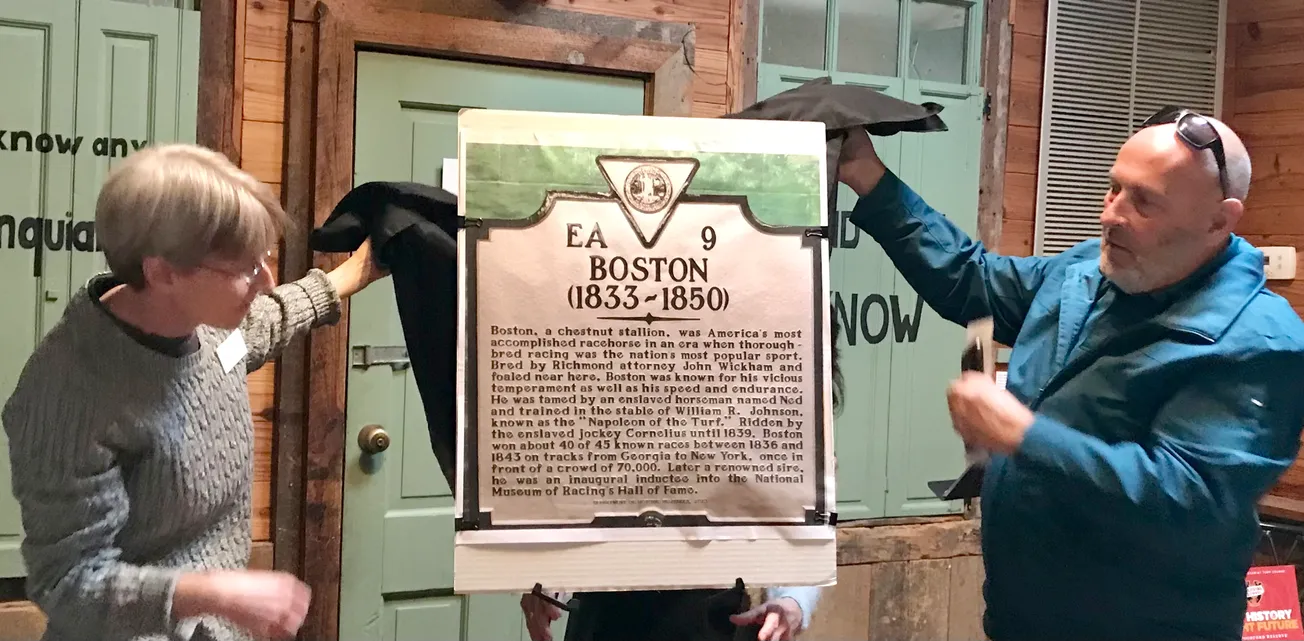Top News — Pets & Animals — Boston racehorse — Community — Far West End — Western Henrico — Henrico Historical Society — National Museum of Racing Hall of Fame — Josh Pons — Sarah Pace
Near his Henrico foaling site, Boston gets his due
Henrico Historical Society celebrates recognition for Hall of Fame horse

